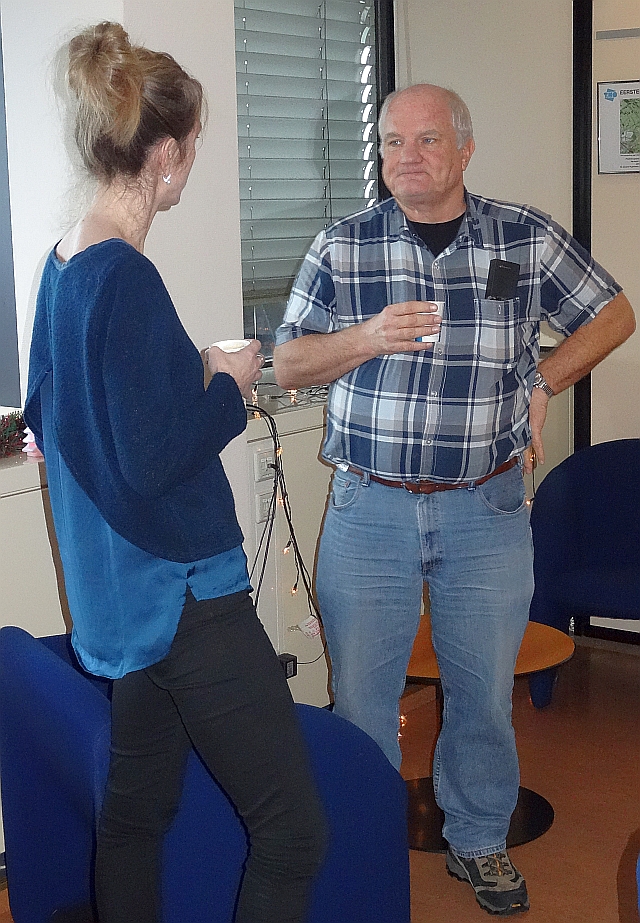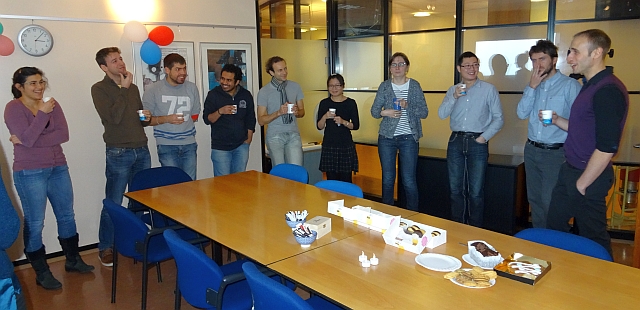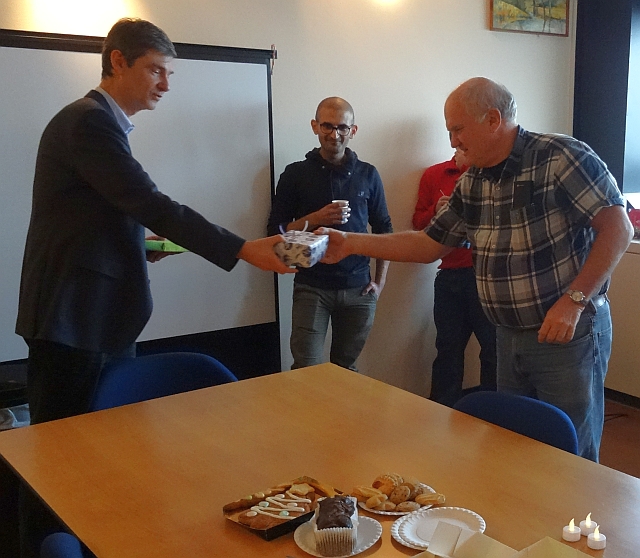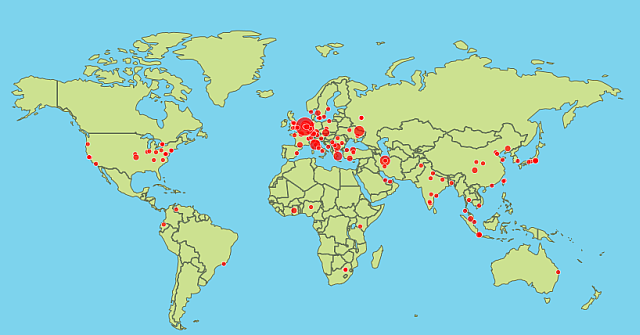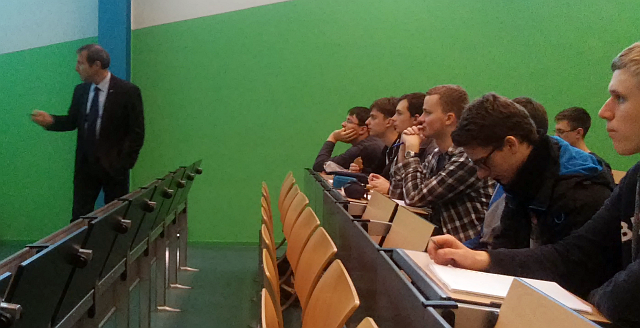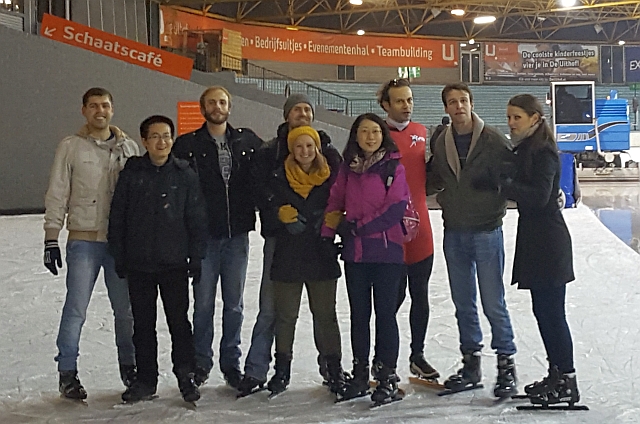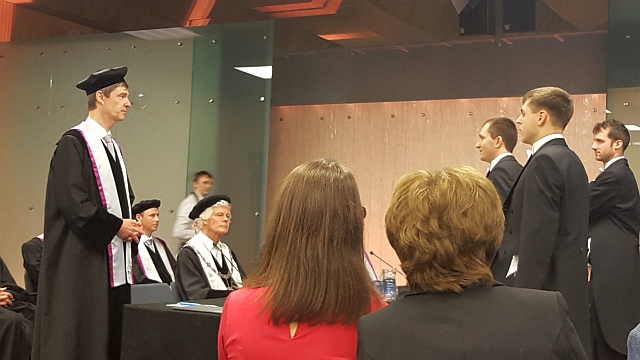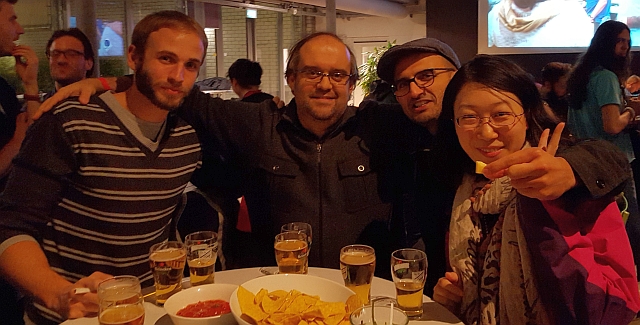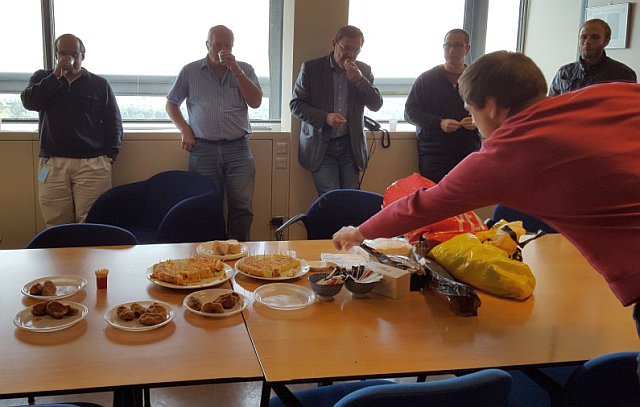Blog Archives
Professor Inggs farewell coffee
Our visitors…
In November 2015 our web-site radar.ewi.tudelft.nl visited by 715 people from whole world…
Invited lecturer
In the second quarter of current teaching year all our lecturers are involved into the course “EE3340TU: Microwave Sensors and Radars for Airport Applications”, which is a part of the Aerospace BSc program minor “Airport of the Future”. Traditionally we also invite world-wide recognized specialists in the field of radars and avionics to give a few lectures. This year our guest is Prof. Felix Yanovsky from the Kiev International University of Civil Aviation, Ukraine. He is currently providing students a set of lectures “Airport Surveillance Systems”.
Speed-skating on Friday night
Near-Realtime Reflectivity and Doppler Velocity Measurements of RAINGAIN started in preliminary mode

You can find current scans on the site…
8th International Summer School on Radar/SAR Systems (15-22 July 2016)
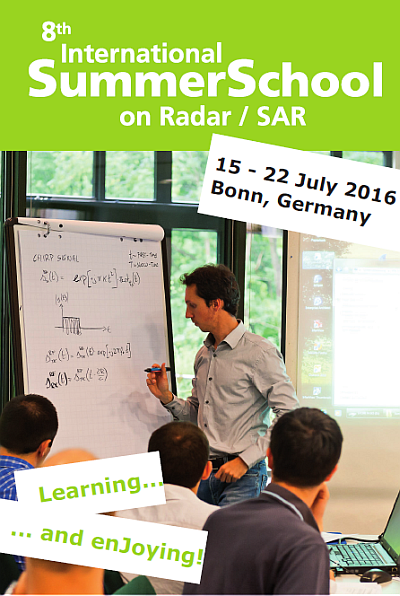 Fraunhofer FHR, one of Europe’s leading radar research institutes and has pioneered radar and SAR research and development over the decades, is pleased to announce the 8th International Summer School on Radar/SAR, which will take place from 15-22 July 2016 in the picturesque Upper Middle Rhine region (Haus Humboldtstein). We cordially invite students, PhD candidates, post-docs and anyone else eager to broaden and deepen their understanding of radar and SAR techniques to participate in our truly international summer school.
Fraunhofer FHR, one of Europe’s leading radar research institutes and has pioneered radar and SAR research and development over the decades, is pleased to announce the 8th International Summer School on Radar/SAR, which will take place from 15-22 July 2016 in the picturesque Upper Middle Rhine region (Haus Humboldtstein). We cordially invite students, PhD candidates, post-docs and anyone else eager to broaden and deepen their understanding of radar and SAR techniques to participate in our truly international summer school.
The highly positive feedback of previous participants showed that there is a strong interest for events that brings together young scientists to study and learn whilst at the same time building networks and forging new friendships that will lead to future collaborations. The Summer School posses a proper balance between lectures, practical workshops and leisure activities that are an essential component for creating and sustaining an atmosphere conducive to learning and for binding with new colleagues.
Internationally renowned experts from across Europe, USA and Canada make up the summer school lecture team. This is a unique opportunity to gain an in-depth appreciation of modern radar and SAR systems whilst absorbing the multifarious atmosphere of the famous Upper Middle Rhine region. Participation in the programme of social activities with the international group of attendees will inspire and enrich your learning experience.
Synopsis of lecture programme of the 8th International Summer School on Radar/SAR:
- Radar fundamentals (Dr. M. Weiß, Fraunhofer FHR, Germany)
- Radar Remote Sensing (Dr. P. Rosen, JPL/NASA, USA)
- SAR fundamentals (Prof. P. Lombardo, University la Sapienza, Italy)
- THz Imaging (Prof. N. Pohl, Fraunhofer FHR, Germany)
- Antenna and other hardware aspects (Prof. D. Heberling, RWTH-Aachen, Germany)
- MIMO Radar and Waveform Design (Prof. M. Lesturgie, ONERA, France)
- Moving target recognition (MTI/GMTI) (Dr. C. Gierull, DRDC, Canada)
- SAR interferometry (Dr. G. Fornaro, IREA, Italy)
- Compressed Sensing with Radar (Prof. J. Ender, Fraunhofer FHR, Germany)
The participants will be split into several workshop groups, which are an essential part of the summer school. These workshops follow the idea of Confucius (~450BC): ‘Tell me, and I will forget. Show me, and I may remember. Involve me, and I will understand.’ With assistance and guidance of international experts each group works on a different problem. Each workshop solution will be presented to all other students.
Outside of the lecture theatre there will be ample time for other activities, such as enjoying the surrounds of the beautiful Rhine Valley, visiting the vibrant cities of Cologne and/or Bonn. Summer school participants will also be taken on a technical tour of the Fraunhofer FHR institute, which is located nearby.
Due to the kind sponsorship from Airbus Defence&Space (an EADS company) we can offer the summer school, inclusive full board and lodging, for only 600 Euro for students, 900 Euro for Ph.D. candidates, and 1200 Euro for all others.
Fraunhofer FHR cordially invites appropriate candidates to visit our website: http://www.radarsummerschool.fraunhofer.de for further information and to download the Application form. Specific queries regarding the summer school should be addressed to: matthias.weiss@fhr.fraunhofer.de.
Congratulations, Doctor Penkin!
“Real” Spanish food taste.
Work hard, enjoy hard!
Because at MS3 we do not only work but also we have social events. This photograph was about a “Spanish” tasting food event, in which spanish omelette (Recipe) and hand-made Croquettes were just poured with a spanish red wine (from Ribera del Duero) and white wine (Albariño).
It was a quite a nice event where we were able to cheer and relax together a little bit. And also, the food seemed to be good, at least, everything was gone…including the wine!
TU Delft news: Rain Radar installed in Rotterdam
Should you go by bus or by bicycle? Take your umbrella or your sunglasses? A newly installed rain radar in Rotterdam may help, as it will be able to accurately chart and predict local precipitation. Main aim of the project is to prevent local flooding and water damage.
A new type of rain radar was installed in Rotterdam on 22 September. The radar was installed on the roof of the Delftse Poort office building on the Weena. It will be used to accurately chart the rain patterns in Rotterdam.
As high as possible
Unlike the existing radars that measure precipitation throughout the whole of the Netherlands, the recently installed rain radar specialises in measuring local precipitation. For optimum observation of precipitation in the city, the rain radar must be placed as high as possible above the city’s skyline. The radar was therefore placed on the roof of the Delftse Poort office building on the Weena – one of the tallest buildings in the city centre. The radar was hoisted up via the window cleaner’s lift to a height of 150 metres and fixed to a special frame on the roof in order to withstand strong wind gusts. The radar’s range is 30 kilometres and therefore covers the entire city and the surrounding area, including the Europoort.
Test phase
The radar will now be extensively tested. The rotation of the radar antennas requires very precise control to enable accurate measuring. Processing the radar signals – many terabytes of data – places high demands on data communication for which special fibre-optic connections have been laid running up to the roof. Following the test phase, the radar will officially become operational in mid-October.
RainGain
The Rotterdam rain radar forms part of the wide-ranging European RainGain project, a transnational project aimed at improving the prediction of pluvial floods in our cities. RainGain develops and tests innovative tools and practices based on the use of high resolution radars in four pilot cities: Leuven, London, Paris, and Rotterdam.
More information on the use of rain radars is provided in this interview with Marie-Claire ten Veldhuis (CiTG):

